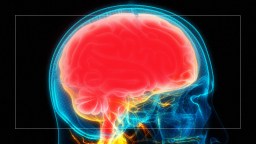DAVID EPSTEIN: When we teach someone something, we want them to feel good about their learning. And one way to help a learner speed up their apparent progress is to sometimes give them little hints. The problem is, sometimes hint-giving can actually undermine the long-term development of knowledge. There's a really interesting study that demonstrates how this works. It was done on two individuals named Oberon and MacDuff, who happened to be rhesus macaques, monkeys, who were trained to memorize lists in order -- lists of images that they had to pick in order off of a screen. The images could be tulips, a school of fish, Halle Berry, et cetera. And they had trials where they were training to see the order of these pictures.
But the trials came in different varieties. In certain cases, Oberon and MacDuff automatically got hints on the order of the images so they knew what to pick next. In other cases, hints were always available but they didn't have to take them. But they could when they wanted to. And in another case, hints were available about half the time. And in a final instance, for a final set of lists, there were no hints whatsoever. And so over several days of training and hundreds of trials on each of these different sets of lists, Oberon and MacDuff started performing well on the lists where they got hints. On the ones where they didn't get hints, not as well. Then they took a break and came back for test day. No more hits on test day whatsoever, and it was a performance disaster. Oberon and MacDuff got almost nothing right from the lists where they were given hints. The more hints they were given in training, the worse they did on test day. And for the lists where they got no hints, all of a sudden Oberon got about 3/4 of them right and MacDuff, who was generally not as good, got about half of them right. And this demonstrates something well known about human learning, actually, called the generation effect. The generation effect means sort of what it sounds like; the effort of generating an answer actually primes your brain for learning.
So the kind of testing that Oberon and MacDuff were doing, when they had lists with no hints even though they were struggling, it was forcing them to attempt to generate an answer. And even when they were wrong, that primes your brain to then retain the knowledge. Where in the cases where they were given hints, they didn't have that same kind of priming, that same kind of work, to generate a correct answer.
So the lesson that comes from this area of cognitive psychology is that really you should be testing yourself before you're ready, because that's how you prime your brain for better learning. Or to quote the cognitive psychologist Nate Cornell, who was involved in the monkey study but usually studies cognition in humans: Frustration and difficulty is not a sign that you aren't learning, but ease is.






